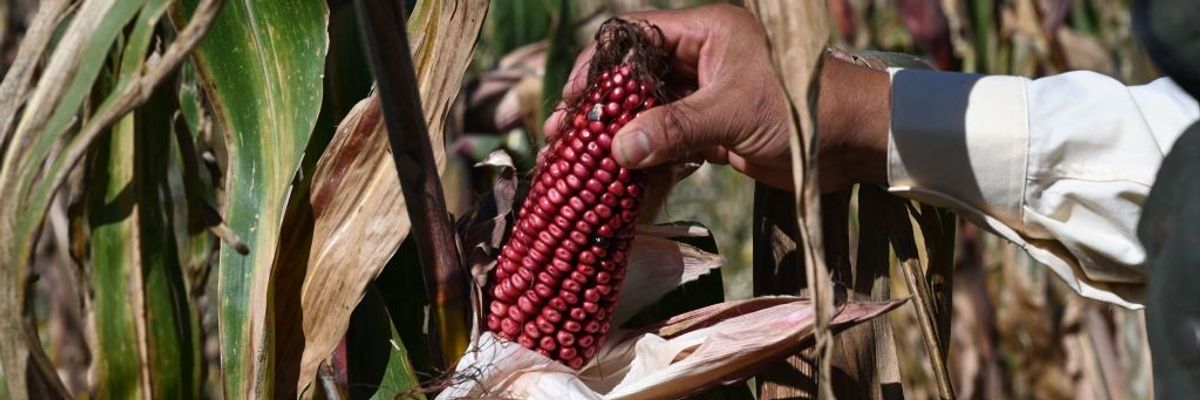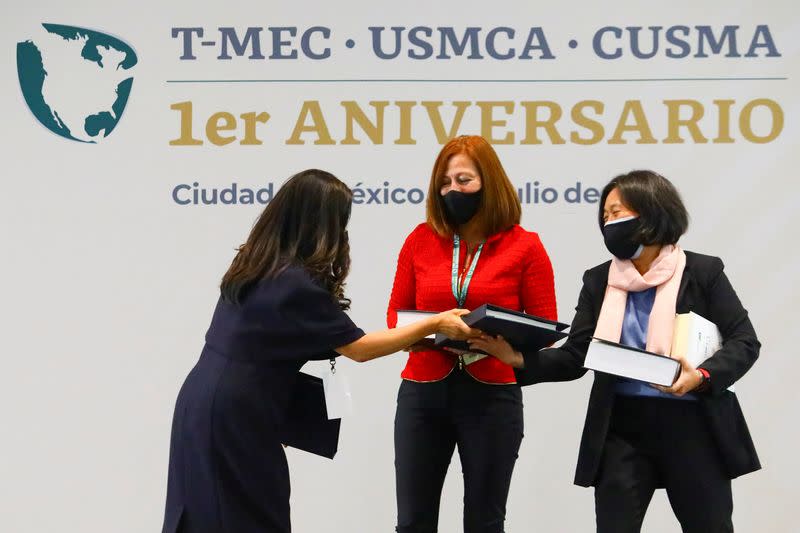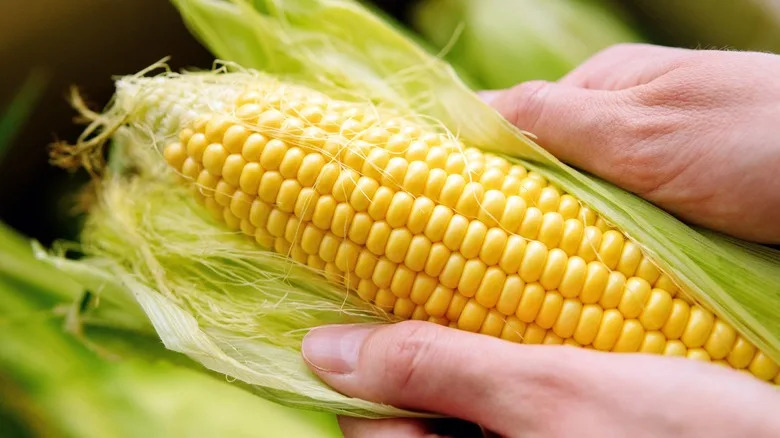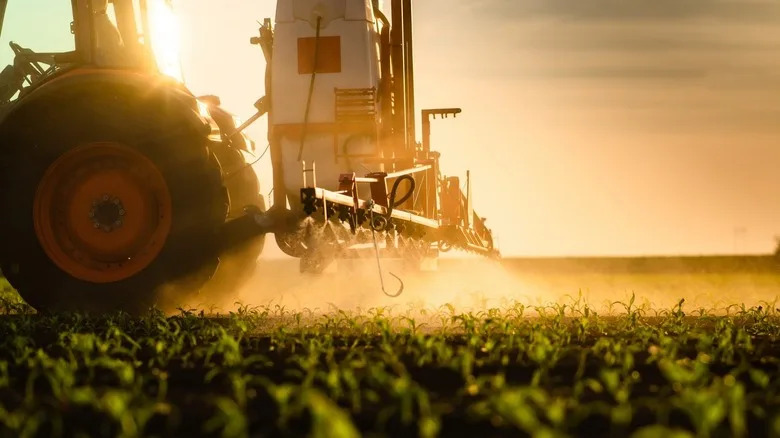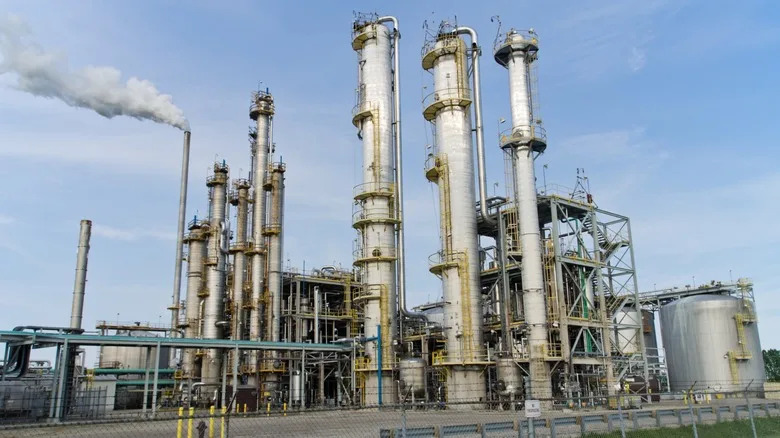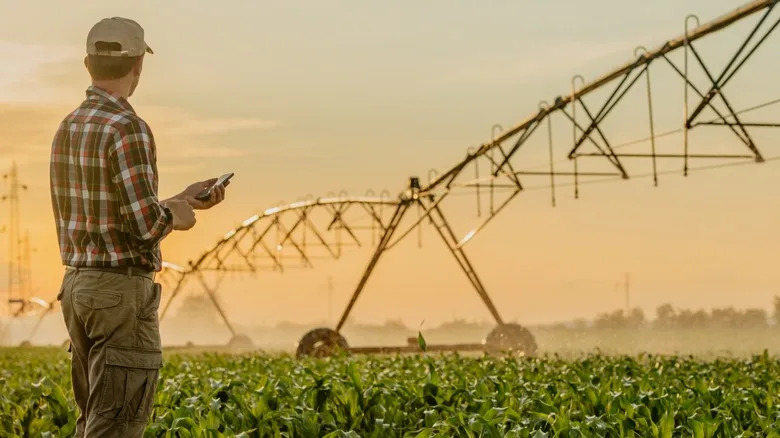David Alire Garcia and Adriana Barrera
Fri, October 8, 2021
MEXICO CITY, Oct 8 (Reuters) - Mexican health safety regulators have rejected a new variety of GMO corn for the first time, according to German conglomerate Bayer which makes the grain and blasted the decision, saying it was looking into its legal options.
Mexico, birthplace of modern corn, has never permitted the commercial-scale cultivation of GMO corn but has for decades allowed such varieties to be imported, mostly from U.S. farmers and overwhelmingly used to fatten livestock.
Mexican regulators did not confirm the decision and also did not reply to several requests for comment. Regulators must approve each new variety developed by seed companies before crops grown from them can later be imported.
In late August, heath regulator Cofepris rejected a permit for a new GMO corn variety sought by pharmaceutical and crop science giant Bayer, according to data from Mexico's National Farm Council (CNA) later confirmed by the company.
The regulator determined that the new seed variety was designed to tolerate weed-killer glyphosate, adding it considers the widely used herbicide dangerous and said its rejection was based on a "precautionary principle," the data showed.
The Cofepris ruling was never publicly disclosed, and its press office did not respond to requests for comment.
CNA President Juan Cortina said in an interview that Mexican corn importers will begin to feel the impact from the rejection as soon as next year.
"This is the first obstacle, which isn't immediate, but it's coming," he said, pointing to seven other pending GMO corn seed permits that have been waiting from between 14 to 34 months for a resolution. He said he believed the decision violated the USMCA North American trade agreement.
Neither Mexico's economy ministry, responsible for international trade, or the Office of the U.S. Trade Representative in Washington, immediately responded to a request for comment on Cortina's allegation.
While regulators worldwide have determined glyphosate to be safe, Bayer agreed last year to settle nearly 100,000 U.S. lawsuits for $9.6 billion, while denying claims that the herbicide caused cancer. In February, it struck a $2 billion settlement to resolve future legal claims that glyphosate causes cancer.
In a statement sent to Reuters, Bayer said it was disappointed by the regulator's decision which it described as "unscientific." The company said regulatory delays and the possibility of additional permit denials could have a "devastating impact" on Mexican supply chains.
Bayer said GMO crops have undergone more safety tests than "any other crop in the history of agriculture" and have been judged safe.
In the past, the Mexican government has approved some 90 GMO corn varieties for import, among nearly 170 total approvals for GMO seeds including cotton and soybeans. But under President Andres Manuel Lopez Obrador, who took office in late 2018, no GMO seeds have been approved by Cofepris.
Last year, Mexico imported more than 16 million tonnes of corn from U.S. suppliers, almost all of it grown from GMO varieties.
Cortina said this year the country was poised to import "more than 19 million tonnes," which would mark an all-time record, even as the government pledges to boost domestic production.
Mexico is mostly self-sufficient in its production of white corn, which is used to make the country's staple tortillas, but depends heavily on yellow corn imports for both livestock feed as well as numerous industrial uses like making cereals and sauces.
Lopez Obrador issued a decree late last year that seeks to ban by 2024 both glyphosate and GMO corn for human consumption, but officials have yet to clarify if the ban would apply to livestock feed or the industrial demand.
Deputy Agriculture Minister Victor Suarez, an influential backer of the decree, said last month that the government is now aiming to cut corn imports by half by 2024.
"Right now, I don't think it's going down," said Cortina, referring to the country's demand for imported corn.
He pointed to official agriculture ministry data showing that domestic corn production is down more than 5% during the first six months of this year.
David Alire Garcia
Fri, October 8, 2021

FILE PHOTO: The historic headquarters of German pharmaceutical and chemical maker Bayer AG is pictured in Leverkusen
 |
| BAYER OFFICE DURING WWII |
MEXICO CITY (Reuters) -Bayer is evaluating its legal options after Mexican health regulators for the first time rejected a GMO corn permit it was seeking, the German pharmaceutical and crop science giant said in a statement to Reuters on Friday, blasting the decision as "unscientific."
Reuters reported earlier in the day that regulator Cofepris rejected the corn permit for future import as the government of President Andres Manuel Lopez Obrador hardens its opposition to genetically modified crops.
"We are disappointed with the unscientific reasons that Cofepris used to deny the authorization," the statement said, identifying the rejected corn variety as using its proprietary HT3 x SmartStax Pro technology.
Bayer stressed that the permit denial does not affect its current business, noting that last year the company stopped work on its HT3 hybrid corn varieties due to regulatory delays in the European Union in favor of a new HT4 line which the company expects to launch later this decade.
Bayer nonetheless criticized what it described as continuous regulatory delays with Cofepris as well as the possibility of additional permit denials that could have a "devastating impact" on Mexican supply chains.
The company said genetically modified crops including corn have undergone more safety tests than "any other crop in the history of agriculture" and have been judged safe for humans, animals and the environment.
The Cofepris press office did not respond to multiple requests for comment.
Lopez Obrador issued a controversial decree at the end of last year that outlined a three-year plan to ban the weed killer glyphosate and GMO corn for human consumption.
Industry associations have sharply criticized the plan and have sought unsuccessfully to persuade judges to strike it down, arguing that it risks a trade dispute with the United States. If the ban is interpreted to include animal feed or other industrial uses, they say it will ultimately hit consumers with higher food prices.
The planned prohibition, however, is popular with environmentalists and health-food advocates who argue that spraying glyphosate on the GMO crops designed to tolerate them is indeed harmful.
Glyphosate was pioneered by the Roundup brand of weed killers from agrochemical company Monsanto, which was bought by Bayer as part of a $63 billion acquisition in 2018.
(Reporting by David Alire Garcia in Mexico City;Editing by Christian Plumb and Matthew Lewis)
